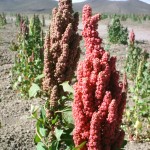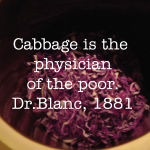 Quinoa (pronounced Keen-wah) is one of the most bland looking, yet most talked about superfoods of the past 2 years. This is due to both its versatility in cooking and the fact that it is a gluten-free grain. It you suffer from celiac disease, consider adding this to your nutrition regime.
Quinoa (pronounced Keen-wah) is one of the most bland looking, yet most talked about superfoods of the past 2 years. This is due to both its versatility in cooking and the fact that it is a gluten-free grain. It you suffer from celiac disease, consider adding this to your nutrition regime.
Other interesting facts about Quinoa:
 High Protein – Quinoa is a great protein alternative for those looking to eat more vegetarian or simply those just wanting to eat more whole foods. Quinoa can promote weight loss, build muscle, alleviate migraine headaches, help diabetes, promote cardiovascular health and prevent hardening of the arteries. It does all this and more while it fulfills its role as a super antioxidant.
High Protein – Quinoa is a great protein alternative for those looking to eat more vegetarian or simply those just wanting to eat more whole foods. Quinoa can promote weight loss, build muscle, alleviate migraine headaches, help diabetes, promote cardiovascular health and prevent hardening of the arteries. It does all this and more while it fulfills its role as a super antioxidant.
Unique – Quinoa is considered a balanced protein, as it contains most of the key life supporting nutrients, along with all eight essential amino acids. This balance makes it highly digestible and completely unique in the plant kingdom.
Rich in Vitamins – Aside from its high protein content, quinoa is high in fibre, and vitamins: potassium, phosphorus, magnesium, iron, copper, folate, and manganese. It is also abundant in linoleic acid, the essential fatty acid for the immune system.
Now for the best part.
It is very easy to cook!
An easy recipe that serves as a main or side dish, and leftover for lunch on its own or in a multigrain wrap:Continue reading





